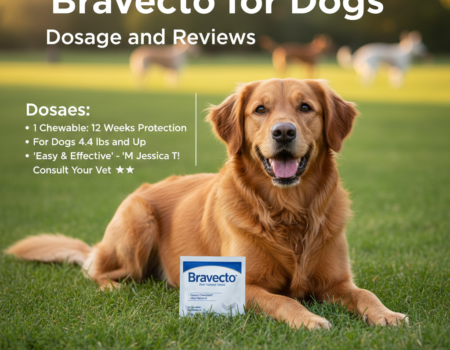Did you know that watermelon is approximately 92% water? It’s no wonder that this juicy fruit is a popular choice for staying hydrated during the hot summer months. But what about our furry friends? Can dogs also enjoy the refreshing taste of watermelon? Let’s find out!
Key Takeaways:
- Dogs can safely eat watermelon, but precautions should be taken to ensure their safety and health.
- Remove the seeds and rind of the watermelon before feeding it to your dog to prevent any potential digestive issues.
- Watermelon offers several health benefits for dogs, including hydration and essential nutrients.
- Feed watermelon to dogs in moderation and practice portion control to avoid gastrointestinal issues.
- Monitor your dog for any adverse reactions after feeding them watermelon and consult a veterinarian if you have any concerns about their diet or health.
Is Watermelon Safe for Dogs to Eat?
Watermelon is a delicious and hydrating fruit enjoyed by many humans, especially during the summer months. But what about our furry friends? Can dogs safely eat watermelon? Generally, the answer is yes. Watermelon is safe for most dogs to consume and can even offer some health benefits. However, it’s important to be aware of certain risks and take precautions when feeding watermelon to dogs.
One of the primary concerns when it comes to dogs and watermelon is the potential toxicity of the seeds. Watermelon seeds can cause intestinal blockages if ingested by dogs. Therefore, it is crucial to remove all seeds before feeding watermelon to your canine companion. By doing so, you eliminate the risk of any gastrointestinal issues.
Additionally, while the flesh of watermelon is safe for dogs, the rind can pose a risk. Watermelon rinds are tough and can be difficult for dogs to digest. Feeding rind to your dog can lead to gastrointestinal upset, including symptoms such as stomach discomfort, vomiting, or diarrhea. Therefore, it’s best to avoid offering the rind to your furry friend.
Although watermelon is generally safe for most dogs, it’s essential to recognize that individual sensitivities and allergies can exist. Just like humans, dogs can have specific fruit allergies or sensitivities that may cause adverse reactions. Therefore, it’s crucial to observe your dog closely after feeding them watermelon for the first time, looking out for any signs of allergies or sensitivities, such as itching, redness, or digestive disturbances. If you notice any unusual symptoms, consult with your veterinarian.
We care about your furry friend’s well-being. By taking the necessary precautions and monitoring your dog’s response to watermelon, you can make it a safe and enjoyable treat for them.
| Risks of Dogs Eating Watermelon | Precautions |
|---|---|
| 1. Potential intestinal blockage from seeds | Remove all seeds before feeding watermelon to dogs |
| 2. Digestive upset from rind | Avoid feeding watermelon rind to dogs |
| 3. Individual sensitivities or allergies | Monitor your dog closely for any adverse reactions and consult with a veterinarian if needed |
Benefits of Watermelon for Dogs
To understand the benefits of watermelon for dogs, let’s dive into the nutritional value that this juicy fruit provides. Watermelon is not only a refreshing summer treat but also a source of essential nutrients for our canine companions.
Watermelon is a low-calorie fruit that contains high water content, making it a hydrating snack for dogs. It consists of approximately 92% water, helping to replenish fluids and prevent dehydration, especially on hot days.
Aside from hydration, watermelon offers various vitamins and minerals that contribute to the overall health of dogs. It contains vitamins A, B6, and C, which promote a strong immune system and support proper functioning of the skin and coat.
Here’s a breakdown of the nutritional content in 100 grams of watermelon:
| Nutrient | Amount |
|---|---|
| Vitamin A | 569 IU |
| Vitamin B6 | 0.092 mg |
| Vitamin C | 8.1 mg |
| Potassium | 112 mg |
Watermelon is also free of fat and cholesterol, making it a healthy snack option for dogs. Its low-calorie content further supports a balanced diet and helps prevent obesity in our furry friends.
Watermelon Nutrition Facts
Watermelon is packed with essential nutrients that contribute to your dog’s well-being. Here are some key nutrition facts about watermelon:
- Watermelon is a rich source of beta-carotene, a precursor of vitamin A, which promotes good eyesight and a healthy coat.
- The vitamin C content in watermelon helps boost the immune system, supporting your dog’s overall health.
- Potassium in watermelon plays a vital role in maintaining proper muscle and nerve function.
- Watermelon contains lycopene, a powerful antioxidant that may help protect against certain types of cancer.
With its combination of hydration, vitamins, and minerals, watermelon provides numerous health benefits for dogs. However, it’s essential to feed watermelon to dogs in moderation, as part of a well-balanced diet.
How to Safely Feed Watermelon to Dogs
When it comes to feeding watermelon to your furry friend, it’s important to prioritize their safety. Here are some safe and enjoyable ways to feed your dog watermelon:
- In chunks: Slice up a watermelon and remove the rinds and seeds before giving it to your dog. This ensures that they can enjoy the juicy and refreshing fruit without any potential choking hazards or digestive issues.
- Frozen chunks: After removing the rinds and seeds, freeze the watermelon chunks and give them to your dog on a hot summer day as a cooling treat. Not only will this help keep your dog hydrated, but it’s also a great way to provide them with a delicious and refreshing snack.
- Puree: Puree the fresh watermelon after removing the seeds and freeze it in an ice cube tray or silicon mold. This creates small, bite-sized portions of frozen watermelon that can be given to your dog as a refreshing and hydrating snack.
- Watermelon “ice cream”: For an extra special treat, blend frozen watermelon chunks with plain, unsweetened yogurt. Serve this homemade watermelon “ice cream” to your dog as a tasty and healthy topping for their food or as a filling for a rubber toy. Just be sure to use yogurt without any harmful additives or artificial sweeteners.
Your dog is sure to enjoy these safe and delicious ways of enjoying watermelon. Remember to always monitor your dog’s response to new foods, including watermelon, and consult with a veterinarian if you have any concerns or questions.
Our Favorite Watermelon Recipes for Dogs
| Recipe | Description |
|---|---|
| Watermelon Popsicles | Create a refreshing treat by blending watermelon and pouring it into popsicle molds. Freeze them overnight for a tasty and cooling snack for your pup. |
| Watermelon and Blueberry Smoothie | Blend watermelon and blueberries together with a splash of water or coconut water. Serve this hydrating smoothie to your dog on a warm day for a nutritious and delicious treat. |
| Watermelon and Mint Slushie | Blend watermelon with fresh mint leaves and a few ice cubes for a refreshing and aromatic slushie that your dog will love. |
Watermelon Facts
Watermelon is not only a delicious fruit, but it also has some interesting facts associated with it. Here are a few watermelon facts:
- An average 15-to-20-pound watermelon yields 90 six-ounce wedges and 11 cups of cubes.
- Watermelons can sometimes have internal cracks in the flesh, known as hollow heart, caused by temperature fluctuations during growth. Hollow heart melons are safe to eat and can be even sweeter in spots due to concentrated sugars along the cracks.
- It takes approximately three months for watermelons to grow from planting to harvest.
- Seedless watermelons were developed 50 years ago and contain no mature seeds, though white seed coats may still be present.
- The scientific name for watermelon is Citrullus lanatus, and it belongs to the botanical family Cucurbitaceae, which also includes cucumbers, pumpkins, and squash.
Did you know that watermelons can have hollow heart melons? These melons have internal cracks in the flesh, and while they may not be visually appealing, they are safe to eat. In fact, they can even be sweeter in certain spots due to concentrated sugars along the cracks. So, don’t be quick to discard a watermelon just because it has some imperfections!
Watermelon and Canine Hydration
Watermelon can be a great hydrating treat for dogs, especially during the summer months. It is approximately 92% water, which helps quench their thirst and replenish fluids. Hydration is important for dogs, especially on hot days or after exercise when they may need extra fluids. Feeding watermelon to your dog can be a refreshing way to help them stay cool and hydrated.
Dogs can benefit from the water content in watermelon to maintain optimal hydration levels. Whether they are playing outdoors, going for walks, or simply spending time in the sun, dogs can easily become dehydrated. Providing them with watermelon can be an effective way to ensure they are getting enough fluids.
“Watermelon is a great source of hydration for dogs, especially during the summer.”
In addition to its hydrating properties, watermelon also contains essential nutrients that contribute to your dog’s overall health. It is rich in vitamins A, B6, and C, which support a healthy immune system, skin, and coat. Watermelon also contains potassium, which plays a role in maintaining proper muscle and nerve function.
Feeding watermelon to your dog can be done in various ways. You can serve it in small, bite-sized chunks or freeze it for a cool and refreshing treat. Just make sure to remove the seeds and rind, as they can cause gastrointestinal issues. Remember to introduce watermelon gradually into your dog’s diet to monitor their response and ensure they tolerate it well.
Frozen watermelon chunks
- Remove the seeds and rind from the watermelon.
- Cut the watermelon into small chunks.
- Place the chunks in the freezer until frozen.
- Give the frozen watermelon chunks to your dog as a tasty and cooling treat.
Hydrating watermelon ice cubes
- Puree the watermelon after removing the seeds and rind.
- Pour the puree into an ice cube tray or silicon mold.
- Freeze until solid.
- Pop out the frozen watermelon cubes and serve them to your dog to keep them hydrated.
Key Points:
- Watermelon can be a hydrating treat for dogs.
- It is approximately 92% water, helping quench thirst and replenish fluids.
- Feeding watermelon to dogs is a refreshing way for them to stay cool and hydrated, especially on hot days or after exercise.
- Watermelon is also rich in vitamins A, B6, and C, as well as potassium, supporting a healthy immune system and overall wellbeing.
- When feeding watermelon to dogs, remember to remove the seeds and rind to prevent any gastrointestinal issues.
Watermelon and Canine Digestive Health
Watermelon is not only a hydrating and delicious treat for dogs, but it also offers significant benefits for their digestive health. One of the reasons watermelon is beneficial for the canine digestive system is its fiber content. Fiber is an essential nutrient that aids in promoting regular bowel movements and preventing constipation in dogs.
Fiber in watermelon helps to:
- Promote regular bowel movements
- Prevent constipation
By incorporating watermelon into your dog’s diet, you can support their overall digestive health and keep their digestive system functioning properly. However, it’s crucial to feed watermelon to dogs in moderation to avoid any potential digestive issues. Excessive consumption of this delicious fruit can lead to gastrointestinal upset and even diarrhea.
Incorporating watermelon into your dog’s diet can be done in various ways. You can serve it as a refreshing snack on its own or use it as an ingredient in homemade treats. Just remember to remove the seeds and rind before offering watermelon to your furry friend.
Pro Tip: Frozen watermelon chunks can provide a cooling and hydrating treat for your dog on hot summer days.
Remember, every dog is different, and it’s crucial to monitor their response to watermelon. If you notice any adverse reactions or if your dog has any underlying health conditions, consult with your veterinarian before introducing watermelon to their diet.
Additional Considerations for Canine Digestive Health
While watermelon can contribute to a healthy digestive system in dogs, it’s important to note that other factors also play a role in maintaining their digestive health. A well-balanced diet, regular exercise, and a consistent feeding schedule all contribute to optimal digestive function in dogs.
Here are a few more tips to support your dog’s digestive health:
- Provide a nutrient-rich and easily digestible diet.
- Avoid sudden dietary changes, as they can disrupt the digestive system.
- Ensure your dog stays adequately hydrated by providing fresh water at all times.
- Consider incorporating probiotics into your dog’s diet, with guidance from your veterinarian.
- Monitor your dog’s weight and maintain a healthy body condition to prevent obesity-related digestive issues.
By prioritizing your dog’s digestive health and providing a well-rounded approach to their diet and lifestyle, you can help ensure their overall well-being and happiness.
Portion Control and Moderation
When it comes to feeding watermelon to our furry friends, portion control and moderation are key. While watermelon is a healthy treat for dogs, overindulgence can result in gastrointestinal issues like diarrhea. To ensure our dogs enjoy watermelon safely, we need to be mindful of their caloric intake and follow the 10% rule.
“Treats should not make up more than 10% of a dog’s daily caloric intake.”
The appropriate amount of watermelon to feed your dog depends on their size and daily caloric needs. Here are some general guidelines:
| Dog Size | Watermelon Quantity |
|---|---|
| Small (up to 20 lbs) | 1/4 to 1/3 cup of cubed watermelon |
| Medium (21-50 lbs) | 1/2 to 3/4 cup of cubed watermelon |
| Large (51-100 lbs) | 1 to 1.5 cups of cubed watermelon |
These are general recommendations, but it’s important to note that every dog is unique. Monitor your dog’s response to watermelon and make adjustments as needed. Remember, watermelon should be given as a treat in addition to their regular balanced diet.
Next, let’s uncover some fascinating facts about watermelon!
Conclusion
In conclusion, dogs can safely enjoy watermelon as a treat, but precautions should be taken. It’s important to remove the seeds and rind before feeding watermelon to dogs and to practice portion control and moderation. Watermelon offers several health benefits for dogs, including hydration and essential nutrients. However, each dog is different, and it’s important to monitor their response to watermelon and consult with a veterinarian if you have any concerns about their diet or health. Remember, feeding watermelon to dogs should be done in addition to their regular balanced diet, not as a substitute.
So go ahead and share a slice of watermelon with your furry friend, but always prioritize their health and well-being.
FAQ
Can dogs eat watermelon?
Yes, dogs can eat watermelon. However, some precautions should be taken to ensure their safety.
Is watermelon safe for dogs to eat?
Watermelon is generally safe for dogs to eat, but there are a few risks to be aware of. It’s important to remove the seeds and rind before feeding watermelon to dogs.
What are the benefits of watermelon for dogs?
Watermelon offers several health benefits for dogs. It is low in calories and packed with important nutrients like vitamins A, B6, and C, as well as potassium. Watermelon is also hydrating and free of fat and cholesterol.
How can I safely feed watermelon to my dog?
There are several safe ways to feed watermelon to dogs. You can give it to them in chunks after removing the rinds and seeds, freeze it for a cooling treat, puree it and freeze it for a refreshing snack, or blend it with yogurt for a tasty topping or filling.
What are some interesting watermelon facts?
Here are a few fun facts about watermelon: an average watermelon yields many wedges and cups of cubes, it can sometimes have internal cracks called hollow heart, it takes approximately three months for watermelons to grow, seedless watermelons have been developed without mature seeds, and the scientific name for watermelon is Citrullus lanatus.
How does watermelon benefit canine hydration?
Watermelon is approximately 92% water, making it a great hydrating treat for dogs. It can help quench their thirst and replenish fluids, especially on hot days or after exercise.
How does watermelon support canine digestive health?
Watermelon contains fiber, which is beneficial for dogs’ digestive health. It promotes regular bowel movements and can prevent constipation. However, it’s important to feed watermelon in moderation to avoid digestive issues.
How should I practice portion control and moderation when feeding watermelon to dogs?
It’s essential to monitor the amount of watermelon you feed your dog to avoid any gastrointestinal issues. The appropriate amount depends on their size and daily caloric intake. General guidelines can be found in the article, but adjustments may be necessary based on your dog’s individual needs.










No Comment! Be the first one.